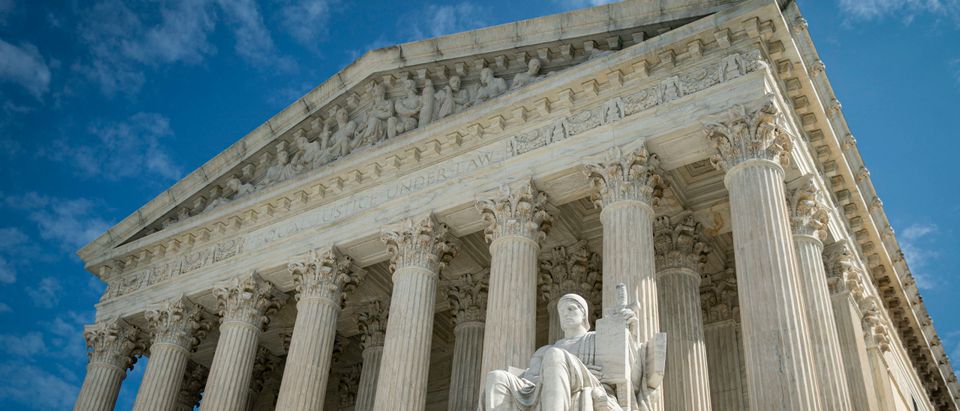The Supreme Court announced in a statement Thursday that the investigation into who leaked a draft of the court’s decision in Dobbs v. Jackson Women’s Health Organization has led to no conclusions.
Politico obtained and published a draft copy of the court’s decision in May, prompting outrage among pro-abortion activists and mass demonstrations in front of conservative justices’ homes.
The day after the leak, Chief Justice John Roberts ordered Supreme Court Marshal Gail A. Curley, the head security officer for the court, to launch an investigation.
The court officially released the decision in June, which overturned the 1973 Roe v. Wade decision and removed the constitutional right to an abortion.
The investigation limited the pool of suspects to a “small” group of mainly law clerks, according to the court’s Thursday statement. The marshal’s team asked the suspects basic questions such as, “Did you do it? Do you know anyone who had a reason to do it?” and conducted forensic analysis, per the statement.
Nine months later, the court concluded that the investigation did not successfully identify the individual who leaked the case, according to the court’s document. The court recently consulted former Secretary of Homeland Security Secretary Michael Chertoff who advised the marshal’s team that he “cannot identify any additional useful investigative measures.”
“My review assessed that the Marshal and her experienced investigators undertook a thorough investigation within their legal authorities, and while there is not sufficient evidence at present for prosecution or other legal action, there were important insights gleaned from the investigation that can be acted upon to avoid future incidents,” Chertoff wrote.
BREAKING: The Supreme Court says it has been unable to identify “by a preponderance of the evidence” who leaked the Dobbs opinion last year.
A statement from the court, along with a report on the leak investigation, is posted here: https://t.co/cVMLKkbCb9
— SCOTUSblog (@SCOTUSblog) January 19, 2023
Chertoff said the team conducted the investigation “appropriately” and “professionally,” and that the court will continue to pursue leads if the team sees fit, the document read. He recommended that the court further restrict the distribution of hard copy versions of sensitive documents or emails, limit access to sensitive content on mobile devices and create tools to ensure protection of sensitive content.
During interviews, some interviewees admitted to telling their spouses or partners about the draft opinion. Some personnel also told investigators that they handled the opinion in ways that “deviated from their standard process,” the document read.
Chertoff wrote that too many personnel have access to sensitive material and pointed to a lack of guidelines regarding the handling of draft opinions. He also described the court’s security policies as “outdated.”
“In time, continued investigation and analysis may produce additional leads that could identify the source of the disclosure,” Chertoff wrote. “Whether or not any individual is ever identified as the source of the disclosure, the Court should take action to create and implement better policies to govern the handling of Court-sensitive information and determine the best IT systems for security and collaboration.”


